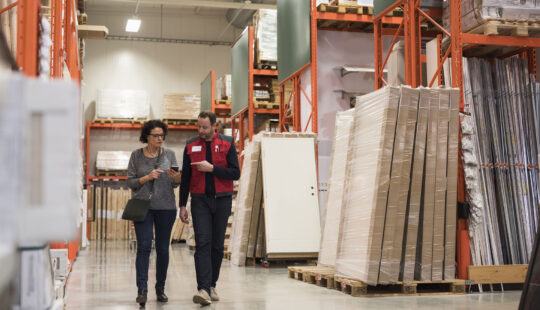Consumers are eager to discover new brands and have never been more open to trying free samples from the safety of their own homes. These were among the recent findings from a consumer shopping behavior survey conducted by startup Sampler.
Ninety-eight percent of respondents reported being more open to new brands, while just two percent said they were sticking to familiar products. What’s more, 98 percent of people were more likely to try new products if they had samples delivered to their homes compared to picking them up in store. Marie Chevrier, Sampler’s founder and chief executive officer (CEO), said these findings reflected why product sampling is full speed ahead on a digital makeover.
“Being able to digitally target consumers who have an interest in your specific products is light years ahead of traditional in-store sampling approaches,” Chevrier said. “Brand managers at consumer packaged goods companies and retailers are amazed at how targeted and measurable they can be, reaching more people who really want their products and staying close to them. Every consumer brand needs this higher level of targeting, and the COVID-19 pandemic just accelerated that demand.”
Relationships Built on Personalized Samples
Headquartered in Canada, Sampler has helped more than 500 of the world’s leading and emerging consumer packaged goods brands send samples to consumers who are interested in their products and build lasting relationships that stoke demand for more.
Sampler customers hail from 24 countries, primarily in North America and Western Europe. The brands cut across beauty, food, beverage, household, baby, personal care supplements, and vitamins, and have one common characteristic: they want to target, track, and measure product sampling programs with greater effectiveness. Like online advertising, brands decide which consumers they want to target. Except, in this case, they are shipping actual sample products to Sampler’s warehouses located worldwide.
Consumers looking for free samples can opt in to receive personalized boxes of product samples by completing a profile. Sampler has a total of approximately 60 million insights from a database of 2 million consumers. The company targets consumers against a filter of 700 segments, such as eating habits, fashion tastes, ingredient preferences, and historical activity with Sampler itself. The relationship building comes in when Sampler asks consumers how they feel about the products they received and if they were likely to purchase them. Follow-up also encourages consumers to leave reviews or ratings with feedback and take advantage of additional offers to make a purchase.
Digital Heralds New Age of Product Sampling
According to Chevrier, half of Sampler consumers who try a product sign up to receive a brand’s newsletter, and one-third rate and review sampled products. Depending on the product category, she said that companies can expect to convert between one to 10 percent of products sampled to a purchase within 90 days.
Many companies incorporate Sampler into social media advertising promotions on their own websites or others, serving up free sample offers targeted toward consumers who have opted in for certain product categories. Sampler also works with various partners, such as online magazines and retailers, with offers for their audiences.
“Companies can easily embed their free offer in an online influencer’s video review, allowing viewers to click on a link and claim their samples,” Chevrier explained. “When consumers leave reviews and ratings, the company can bring that feedback directly into their own platforms and marketing campaigns.”
Integrated Data Delivers Consumer Insights
Chevrier and other team members recently participated in the SAP.iO Foundry Tel Aviv cohort focused on consumer products, working with SAP experts and mutual customer Henkel to integrate Sampler into SAP Customer Data Cloud. Henkel, a global consumer goods and chemicals company that invested in Sampler, has gathered valuable customer insights by connecting data from both solutions. Henkel has also collaborated with other SAP.iO Foundries startups.
“Combining important customer data from Sampler with information in SAP Customer Data Cloud makes it easier for us to continue the dialogue with our customers, providing them with even more personalized, meaningful experiences,” said Michael Nilles, chief digital and information officer at Henkel. “We can quickly follow up with consumers to keep them fully engaged and drive sales conversations across our customer relationship management, marketing, and ecommerce teams.”
Online Shopping Habits Likely to Outlast Pandemic
In the same survey, a whopping 96 percent of consumers planned to keep their newfound online activities – including shopping – after social distancing ends. Like many pandemic-related transformations, at-home, personalized product sampling is likely here to stay.
Follow me: @smgaler
This story originally appeared on SAP BrandVoice on Forbes.



